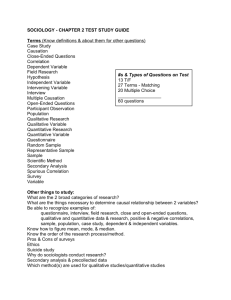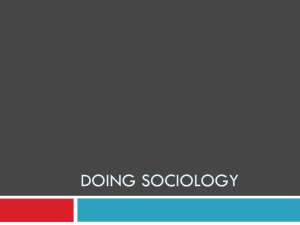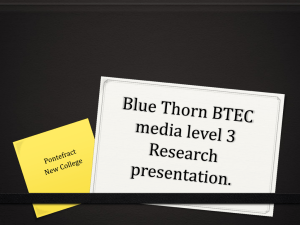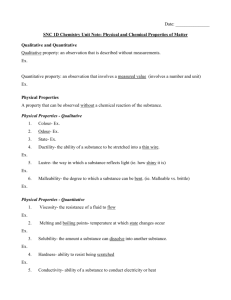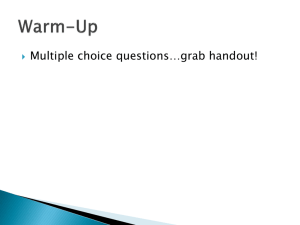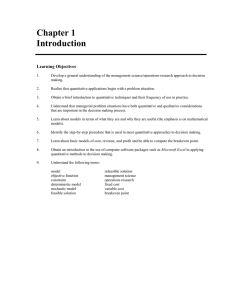Research can be as simple as finding the answer to questions: What
advertisement
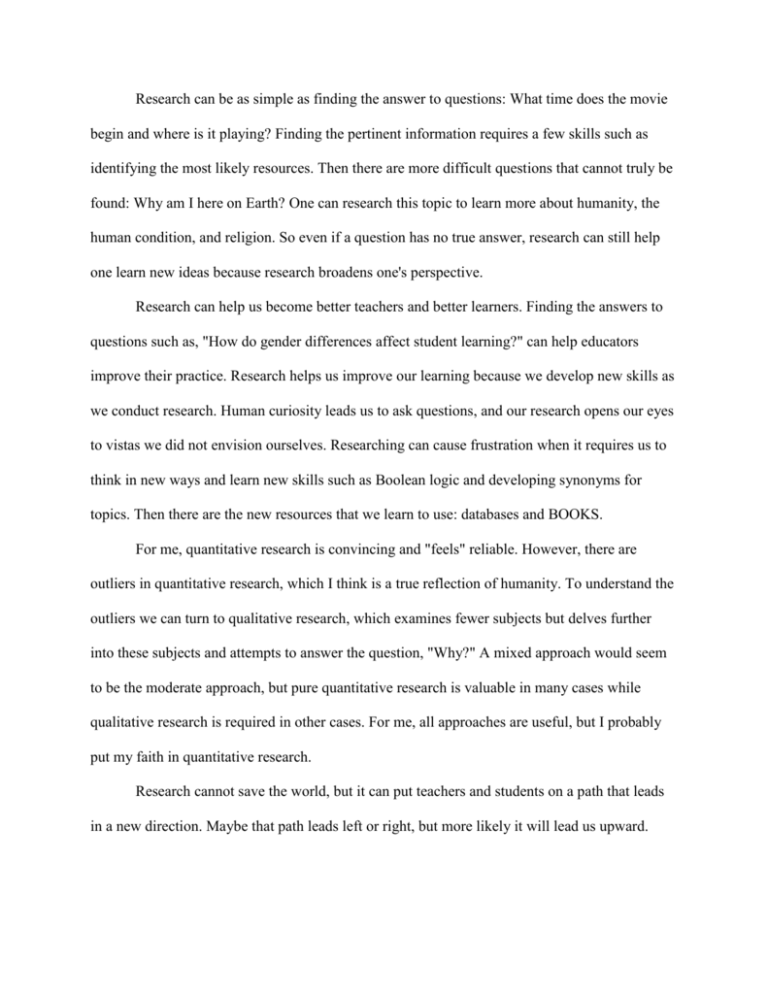
Research can be as simple as finding the answer to questions: What time does the movie begin and where is it playing? Finding the pertinent information requires a few skills such as identifying the most likely resources. Then there are more difficult questions that cannot truly be found: Why am I here on Earth? One can research this topic to learn more about humanity, the human condition, and religion. So even if a question has no true answer, research can still help one learn new ideas because research broadens one's perspective. Research can help us become better teachers and better learners. Finding the answers to questions such as, "How do gender differences affect student learning?" can help educators improve their practice. Research helps us improve our learning because we develop new skills as we conduct research. Human curiosity leads us to ask questions, and our research opens our eyes to vistas we did not envision ourselves. Researching can cause frustration when it requires us to think in new ways and learn new skills such as Boolean logic and developing synonyms for topics. Then there are the new resources that we learn to use: databases and BOOKS. For me, quantitative research is convincing and "feels" reliable. However, there are outliers in quantitative research, which I think is a true reflection of humanity. To understand the outliers we can turn to qualitative research, which examines fewer subjects but delves further into these subjects and attempts to answer the question, "Why?" A mixed approach would seem to be the moderate approach, but pure quantitative research is valuable in many cases while qualitative research is required in other cases. For me, all approaches are useful, but I probably put my faith in quantitative research. Research cannot save the world, but it can put teachers and students on a path that leads in a new direction. Maybe that path leads left or right, but more likely it will lead us upward.





